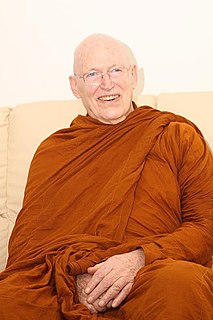A Quote by Thomas Jefferson
Some men look at Constitutions with sanctimonious reverence, and deem them, like the ark of the covenant, too sacred to be touched. They ascribe to the men of the preceding age a wisdom more than human, and suppose what they did to be beyond amendment. I knew that age well; I belonged to and labored with it. It deserved well of its country. It was very like the present, but without the experience of the present; and forty years of experience in Government is worth a century of book-reading; and this they would say themselves, were they to rise from the dead.
Quote Topics
Age
Amendment
Ark
Ascribe
Belonged
Beyond
Book
Century
Country
Covenant
Dead
Deserved
Did
Experience
Forty
Forty Years
Government
Human
Knew
Like
Look
Men
More
Present
Reading
Reverence
Rise
Sacred
Sanctimonious
Say
Some
Some Men
Suppose
Than
Them
Themselves
Too
Touched
Very
Well
Were
Wisdom
Without
Worth
Would
Years
Years Of Experience
Related Quotes
Without any extraordinary effort of genius, I have discovered that nature was the same three thousand years ago as at present; that men were but men then as well as now; that modes and customs vary often, but that human nature is always the same. And I can no more suppose, that men were better, braver, or wiser, fifteen hundred or three thousand years ago, than I can suppose that the animals or vegetables were better than they are now.
When we build ... let it not be for present delights nor for present use alone. Let it be such work as our descendants will thank us for, and let us think ... that a time is to come when these stones will be held sacred because our hands have touched them, and that men will say as they look upon the labor, and the wrought substance of them, See! This our fathers did for us!
You know what I always say to people who say, "Oh, I wish I were 20 years younger"? I say, "Enjoy your age now, because in 20 years you'll be wishing you were this age." You might as well enjoy it at the present time. What I think keeps you young is always having something to look forward to and doing something new.
There's some things that you wouldn't tackle in a children's book because it would be beyond, not the mental capabilities, but the experience of someone under the age of say ten or eleven to encompass. But that field is smaller than you might think. They can easily cope with death and things like that; they know about it and it's a subject that often preoccupies them.
Young men are as apt to think themselves wise enough, as drunken men are to think themselves sober enough. They look upon spirit to be a much better thing than experience; which they call coldness. They are but half mistaken; for though spirit without experience is dangerous, experience without spirit is languid and ineffective.
To know only one thing well is to have a barbaric mind: civilization implies the graceful relation of all varieties of experience to a central humane system of thought. The present age is peculiarly barbaric: introduce, say, a Hebrew scholar to an ichthyologist or an authority on Danish place names and the pair of them would have no single topic in common but the weather or the war (if there happened to be a war in progress, which is usual in this barbaric age).
Worship will never end; whether there be buildings, they will crumble; whether there be committees, they will fall asleep; whether there be budgets, they will add up to nothing. For we build for the present age, we discuss for the present age, and we pay for the present age; but when the age to come is here, the present age will be done away.
In general people experience their present naively, as it were, without being able to form an estimate of its contents; they have first to put themselves at a distance from it - the present, that is to say, must have become the past - before it can yield points of vantage from which to judge the future.































